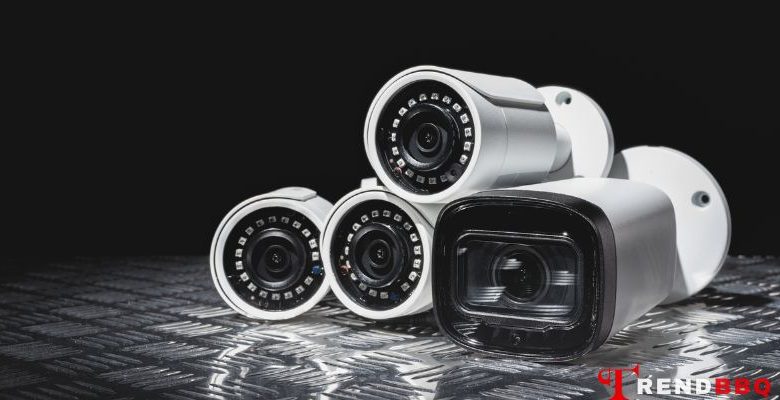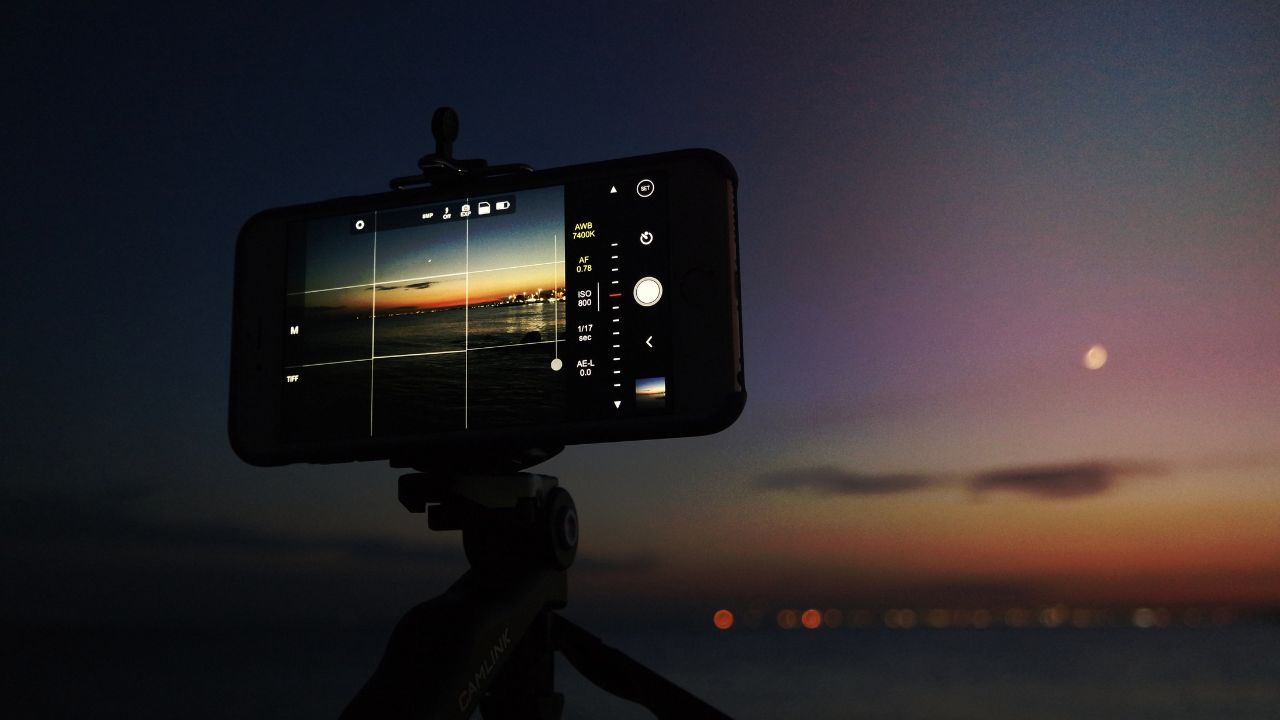
Hidden cameras are a serious invasion of privacy that can make you feel violated and unsafe. Whether you are staying in a hotel, an Airbnb, or any other accommodation, you should always check for hidden cameras before settling in. In this article, Trendbbq will show you how to find hidden cameras using some simple methods and tools.
Table of Contents,
1. Why Do People Hide Cameras?
People hide cameras for various reasons, and the motivations behind using hidden cameras can vary widely. Here are some common reasons why people might hide cameras:
- Security and Surveillance: One of the primary reasons people hide cameras is for security and surveillance purposes. They may want to monitor their homes, properties, or businesses to prevent theft, vandalism, or unauthorized access.
- Home Monitoring: Hidden cameras can be used to monitor children, elderly family members, or pets while they’re at home. Parents may use hidden cameras to ensure their children’s safety or to keep an eye on caregivers.
- Privacy and Safety: In some cases, people hide cameras to protect their own privacy or safety. For instance, individuals who feel they’re being harassed or threatened may use hidden cameras to gather evidence of such behavior.
- Criminal Activity: Hidden cameras can be used to capture evidence of criminal activity, such as theft, burglary, or trespassing. Law enforcement agencies or private investigators may use hidden cameras in investigations.
- Workplace Monitoring: Employers may use hidden cameras to monitor employee behavior, productivity, and compliance with company policies. However, this must be done in accordance with privacy laws and regulations.
- Nanny or Babysitter Monitoring: Parents who hire nannies or babysitters might use hidden cameras to ensure their children are being properly cared for and to ensure the safety of their home.
- Investigations: Private investigators, journalists, and researchers may use hidden cameras to gather information for their work, especially in cases where overt filming could compromise the investigation.
- Home Automation and Control: Some hidden cameras are integrated into smart home systems, allowing homeowners to monitor their properties remotely through smartphones or computers.
- Preventing Misconduct: In some cases, hidden cameras might be used to deter or prevent misconduct, as the presence of a camera may discourage individuals from engaging in inappropriate behavior.
- Pranks and Entertainment: People may use hidden cameras for entertainment purposes, such as capturing humorous reactions or creating prank videos.
2. How to Find Hidden Cameras Using Your Phone
One of the easiest ways to find hidden cameras is to use your phone. There are two methods that you can try:
Method 1: Visual Inspection Using Your Phone’s Camera
- Turn Off Lights: Dim the lights in the room to make it easier to spot reflections.
- Use a Flashlight: Turn on your phone’s flashlight to illuminate the area.
- Scan the Room: Slowly move your phone around the room, focusing on areas where cameras might be hidden, such as smoke detectors, wall outlets, decorative items, and vents.
- Look for Glints: Watch for small, bright reflections that could indicate the presence of a camera lens. Hidden camera lenses might reflect light differently from their surroundings.
- Use the Front Camera: If you have a front-facing camera, use it to see around corners and under objects.
Method 2: Using a Hidden Camera Detection App
- Download a Detection App: Search your device’s app store for hidden camera detection apps. There are several apps available for both Android and iOS devices.
- Install and Open: Download and install a reputable hidden camera detection app. Some popular options include “Hidden Camera Detector” and “Glint Finder.”
- Follow App Instructions: Open the app and follow the instructions provided. Usually, you’ll need to move your phone around the room while the app scans for potential hidden cameras.
- Pay Attention to Alerts: These apps may provide alerts or visual cues when they detect potential camera lenses.
However, these methods are not foolproof and may not work for all types of hidden cameras. Therefore, you should also use other methods to confirm your findings.

3. How to Find Hidden Cameras Using Other Tools
If you want to be more thorough and professional, you can use some other tools that are designed to find hidden cameras. Some of the tools that you can use are:
- A flashlight: A flashlight can help you spot any reflective surfaces that may indicate a hidden camera lens. To use this method, turn off the lights in your room and shine the flashlight on any suspicious objects or areas. If you see any glints or reflections that look like a camera lens, you may have found a hidden camera.
- A radio frequency (RF) detector: An RF detector can help you detect any wireless signals that may come from a hidden camera. To use this method, turn on the RF detector and scan the area with it. If you hear any beeps or see any lights that indicate a wireless signal, you may have found a hidden camera.
- A hidden camera detector: A hidden camera detector is a device that combines both the flashlight and the RF detector functions. It can help you find both wired and wireless hidden cameras by emitting infrared light and detecting wireless signals. To use this device, turn it on and scan the area with it. If you see any flashes of light or hear any beeps that indicate a hidden camera, you may have found one.
These tools are more reliable and effective than using your phone, but they can also be more expensive and harder to find. You can buy them online or from some specialty stores.
4. How to Protect Yourself from Hidden Cameras
If you find any hidden cameras in your room, you should immediately report them to the authorities and the accommodation provider. You should also take pictures or videos of the evidence and ask for a refund or a different room.
However, prevention is better than cure. Here are some tips on how to protect yourself from hidden cameras before you check in:
- Read reviews: Before booking any accommodation, read the reviews from previous guests and look for any red flags or complaints about privacy issues. If there are many negative reviews or no reviews at all, avoid that place.
- Check the policies: Before booking any accommodation, check the policies and terms of service and look for any clauses that mention surveillance or recording devices. If there are any such clauses or if they are vague or unclear, avoid that place.
- Inspect the room: Before settling in your room, inspect it thoroughly using the methods and tools mentioned above. Pay attention to any objects or areas that look out of place or suspicious. If you find anything suspicious or uncomfortable, ask for a different room or leave.
Hidden cameras are a serious threat to your privacy and security that can ruin your travel experience. However, by following these tips and using these methods and tools, you can find hidden cameras and protect yourself from them.
FAQs
Why would I need to find hidden cameras?
Finding hidden cameras is essential to protect your privacy and security, as unauthorized surveillance can infringe on your personal space.
How to detect hidden cameras?
You can use various methods, such as a physical search, using a flashlight to spot reflections, using a camera detector app, or employing a professional hidden camera detector device.
How do camera detector apps work, and are they reliable?
Camera detector apps use your smartphone’s sensors to detect unusual signals emitted by cameras. They can be helpful, but their reliability varies. Professional detector devices are generally more accurate.
What equipment can I use to find hidden cameras?
You can use physical searches, flashlight checks for reflections, smartphone camera detector apps, or invest in professional camera detection devices available online or at security stores.
Are there any signs that can help me spot hidden cameras?
Look for small holes, unusual wires, or LEDs that might be indicators of hidden cameras. Unusually placed decorations or objects that seem out of place could also be potential hiding spots.



